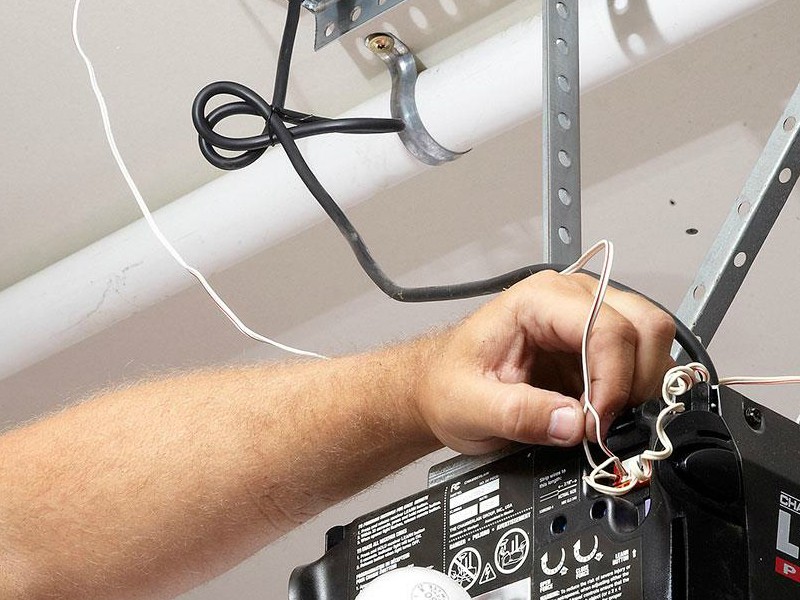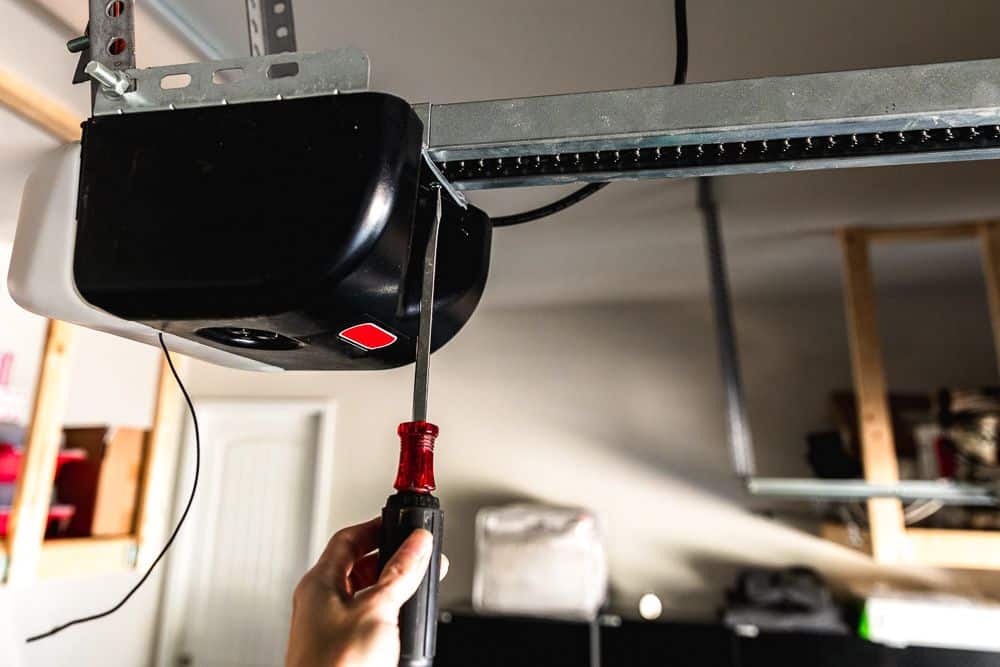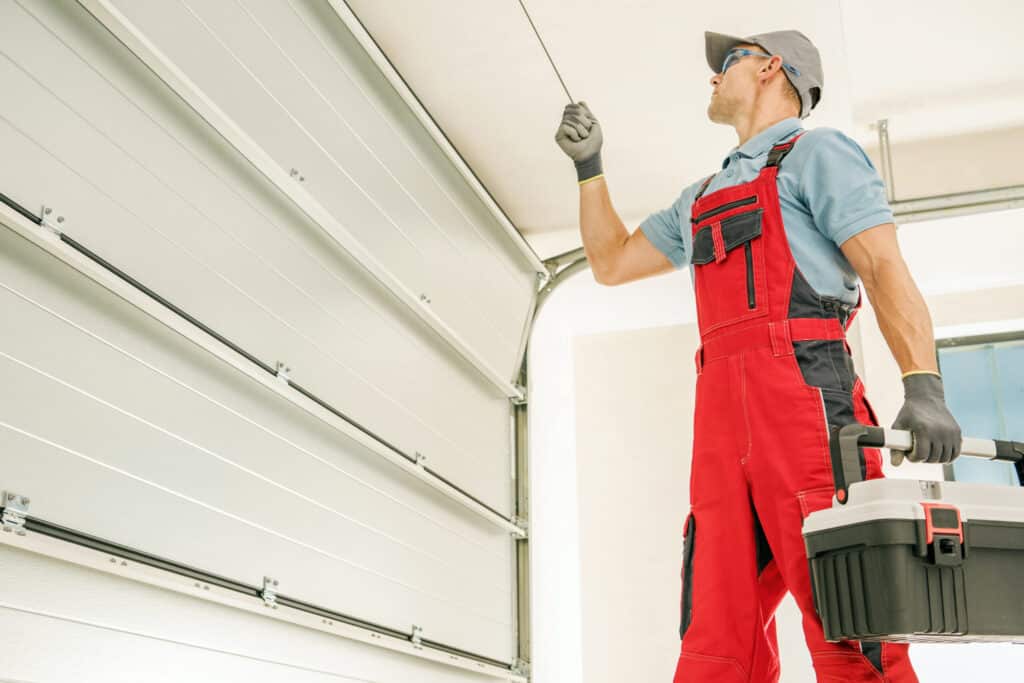Garage door motors play a crucial role in the smooth operation of your garage door. They are responsible for opening and closing the door efficiently, providing convenience and security to homeowners. However, like any mechanical device, garage door motors can wear out over time and may need to be replaced. In this article, we will explore the signs that your garage door motor needs replacement, the cost of replacement, steps to replace it, benefits of installing a new motor, factors to consider when choosing one, tips for proper installation, and the importance of hiring a professional for the job.
Signs that Your Garage Door Motor Needs to be Replaced

- Unusual Noises: If you notice strange noises coming from your garage door motor, such as grinding, screeching, or banging sounds, it could be a sign of a worn-out motor. These noises indicate that the motor’s internal components are not functioning properly and may require replacement.
- Slow Operation: A garage door motor that takes longer than usual to open or close the door may be a clear indicator of a faulty motor. Over time, motors can lose their power and struggle to perform their intended function efficiently. If you notice a significant decrease in the speed of your garage door, it’s time to consider a replacement.
- Inconsistent Performance: If your garage door motor operates erratically, opening or closing partially or stopping midway, it is a sign of a motor in need of replacement. Inconsistency in performance can be frustrating and may lead to further issues if not addressed promptly.
- Frequent Breakdowns: If you find yourself frequently calling for repairs due to motor-related issues, it is a strong indication that your garage door motor is nearing the end of its lifespan. Constant breakdowns can be costly and inconvenient, making it wise to replace the motor before it fails completely.
- Age of the Motor: Garage door motors, like any other mechanical device, have a limited lifespan. If your motor is more than 10 to 15 years old, it is likely approaching the end of its serviceable life. Even if it is still functioning, it is a good idea to consider replacing it to avoid sudden failures.
Considerations for Selecting a Garage Door Motor
Selecting the appropriate garage door opener necessitates a thorough evaluation beyond simply opting for the most economical option available, especially when analyzing garage door motor issues. Prior to finalizing your purchase, it’s imperative to contemplate several vital criteria.
- Dimensions and Weight of the Garage Door: The size and weight of your garage door play a crucial role in determining the type of opener to acquire. For instance, a heavy, expansive door might not be compatible with a screw drive, but could efficiently work with a chain drive. If your door exceeds standard heights, you might also require an extension kit for optimal functionality.
- Garage Door Material: Garage doors are constructed from a variety of materials, including PVC overlay, aluminum, fiberglass, steel, and wood. The material’s attributes can influence the type of opener you select.
- Motor Horsepower: It’s advisable to choose an opener with a motor horsepower rating ranging from ½ to 1 ½. A ½ horsepower motor is typically adequate for a sectional two-car garage door. Conversely, weightier doors or singular-piece doors necessitate higher horsepower.
- Power Source: Modern garage door openers function on either alternating current (AC) or direct current (DC).
- Noise Level: If ambient noise levels concern you, consider opting for a belt or screw drive, which are known to operate more quietly than their counterparts.
- Safety Features: Safety remains paramount. Prioritize openers equipped with features such as automatic reversing sensors, infrared beams, and rolling code technology.
- Budget Constraints: Financial considerations undeniably influence purchasing decisions. If your budget permits, the belt drive offers a premium experience. Alternatively, for a more cost-effective option, the chain drive remains a commendable choice.
Understanding the Cost of Garage Door Motor Replacement
The cost of replacing a garage door motor can vary depending on several factors. The type and model of the motor, the complexity of the installation, and the additional features you choose can all impact the overall cost. On average, the cost of a garage door motor replacement can range from $200 to $800, including both the motor and installation fees.
It is essential to consider the long-term benefits and savings when evaluating the cost. A new garage door motor can provide improved energy efficiency, enhanced security features, and smoother operation. Investing in a high-quality motor can also prolong the lifespan of your garage door system, reducing the need for expensive garage door repairs in the future.
Steps to Replace Your Garage Door Motor

Replacing a garage door motor is a complex task that requires careful attention to detail and knowledge of the system. Here are the general steps involved in the replacement process:
- Disconnect Power: Before starting any work, ensure that the power to the garage door opener is disconnected. This step is crucial to prevent any accidents or injuries during the replacement process.
- Remove Old Motor: Begin by removing the existing motor from the garage door opener unit. This typically involves disconnecting wires, removing mounting brackets, and detaching the motor from the rail system.
- Install New Motor: Carefully follow the manufacturer’s instructions to install the new motor. This includes connecting the wires, attaching the motor to the mounting brackets, and securing it to the rail system.
- Test and Adjust: Once the new motor is installed, reconnect the power and test the garage door’s operation. Make any necessary adjustments to ensure smooth and proper functioning.
- Regular Maintenance: To extend the lifespan of your new garage door motor, it is essential to perform regular maintenance, which may involve tasks such as lubricating moving parts, checking for loose screws, and inspecting the overall condition of the motor, as well as addressing any necessary garage door repair.
Benefits of Installing a New Garage Door Motor
Installing a new garage door motor offers several benefits for homeowners. Here are some of the advantages you can expect:
- Improved Security: New garage door motors often come with advanced security features, such as rolling code technology and encryption, which prevent unauthorized access to your garage.
- Enhanced Safety: Modern motors are equipped with safety sensors that can detect obstacles, preventing the door from closing and potentially causing harm to people or objects in its path.
- Energy Efficiency: Newer motors are designed to be more energy-efficient, which can result in lower electricity bills. They consume less power during operation, minimizing unnecessary energy wastage.
- Quieter Operation: Older motors tend to be noisy, causing disturbances to household members and neighbors. Upgrading to a new motor can significantly reduce noise levels, providing a quieter and more peaceful environment.
- Increased Convenience: New garage door motors often come with additional features, such as remote control access, smartphone integration, and battery backup systems. These features add convenience and ease of use to your garage door system.
Factors to Consider When Choosing a Garage Door Motor
When selecting a new garage door motor, consider the following factors:
- Horsepower: Garage door motors come in various horsepower options, depending on the size and weight of your garage door. It is crucial to choose a motor that has sufficient power to handle the specific requirements of your door.
- Noise Level: If noise is a concern for you, look for motors that are known for their quiet operation. Belt-driven or direct-drive motors are typically quieter than chain-driven ones.
- Security Features: Evaluate the security features offered by different motors. Look for features such as rolling code technology, which changes the access code each time the door is opened, preventing unauthorized entry.
- Warranty: Check the warranty provided by the manufacturer. A longer warranty period indicates the manufacturer’s confidence in their product’s quality and reliability.
- Professional Installation: Consider hiring a professional for the installation to ensure proper and safe operation. They have the expertise and experience to handle the installation process efficiently.
Tips for Proper Garage Door Motor Installation
Proper installation of a garage door motor is crucial for its optimal performance and longevity. Here are some essential tips to keep in mind during the installation process:
- Read the Instructions: Carefully read and understand the manufacturer’s installation instructions before starting the process. Following the instructions will ensure that the motor is installed correctly.
- Safety First: Always prioritize safety during the installation. Disconnect the power, use appropriate safety equipment, and avoid working alone to prevent accidents.
- Secure Mounting: Ensure that the motor is securely mounted to prevent vibrations and movement during operation. This will contribute to a quieter and more stable garage door system.
- Balance the Door: A properly balanced garage door is essential for smooth operation. Check the door’s balance and make any necessary adjustments before installing the new motor.
- Test the Safety Features: Once the installation is complete, test the safety features of the garage door, such as the auto-reverse mechanism, to ensure they are functioning correctly.
Hiring a Professional for Garage Door Motor Replacement

While some homeowners may attempt to replace their garage door motor themselves, hiring a professional for garage door repair is often the best course of action. A professional technician has the knowledge, experience, and tools required to complete the replacement safely and efficiently.
Furthermore, professional installation ensures that the motor is compatible with your specific garage door system and that all safety features are properly set up. They can also offer valuable advice on selecting the right motor for your needs and provide maintenance tips to prolong its lifespan.
Frequently Asked Questions about Garage Door Motors
- How long do garage door motors typically last?
- On average, garage door motors have a lifespan of 10 to 15 years. However, regular maintenance and proper usage can help extend their longevity.
- Can I replace the motor myself?
- While it is possible to replace the motor yourself, it is recommended to hire a professional for safe and efficient installation.
- How much does garage door motor replacement cost?
- The cost of garage door motor replacement can vary depending on several factors, but the average cost ranges from $200 to $800, including installation fees.
- Are all garage door motors the same?
- No, garage door motors come in different sizes, horsepower ratings, and features. It is essential to choose a motor that is compatible with your specific garage door system.
- How often should I perform maintenance on my garage door motor?
- Regular maintenance should be performed at least once a year. This includes lubricating moving parts, checking for loose screws, and inspecting the overall condition of the motor.
Conclusion: Importance of Regular Maintenance for Garage Door Motors
In conclusion, a well-functioning garage door motor is essential for the smooth operation and security of your garage. By understanding the signs that indicate a motor replacement is needed, considering the cost and benefits of replacement, and following proper installation procedures, you can ensure a reliable and efficient garage door system.
Regular maintenance of garage doors is crucial to prolonging the lifespan of your garage door motor and avoiding costly repairs. If you are unsure about installing or replacing a garage door motor yourself, it is always best to seek professional assistance. Contact First Responder Garage Doors for expert advice and reliable garage door motor replacement services.
Remember, a properly functioning garage door motor provides convenience, security, and peace of mind for homeowners. Don’t wait for complete failure – address the signs early and ensure the longevity of your garage door system.
